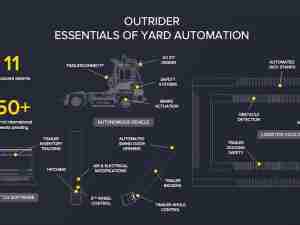Nepal considers fuel rationing as protesters block trucks
By: Reuters | Sep 26 2015 at 08:47 AM | Intermodal
KATHMANDU - Nepal is considering rationing oil and fuel, a Nepal Oil Corp spokesman said on Saturday, after hundreds of trucks were held up this week at the India border when protesters against a new constitution gathered to block the road.
Nepal adopted the charter last Sunday to promote unity and stability after years of civil war, but its demarcation of provinces has upset people in Nepal’s south who fear the new federal structure will marginalise them. At least 40 people, mostly protestors, have been killed in violent clashes since August.
About 900 trucks carrying food, fuel and other items were lined up on the Indian side of the Raxaul-Birgunj border on Saturday, said Kamlesh Kumar, assistant commissioner of customs at the border point, as protestors from the Madhesi Morcha party blocked the road in Nepal for a third day.
“If we do ration petrol and oil, we can manage for a couple of weeks,” said Deepak Baral, a Nepal Oil Corp spokesman.
Nepalese officials, however, pinned blame for the logjam on India, Nepal’s southern neighbour and biggest trading partner, which has been drawn into the political crisis after criticising Nepal’s political leadership for rushing through the constitution despite the dissent.
“India has closed the border,” said Rograj Pant, a customs official at the Raxaul-Birgunj border in Nepal. “There are no goods coming across for (the protestors) to block.”
Asked to comment on Nepalese worries that India had imposed an informal blockade, India’s external affairs ministry spokesman Vikas Swarup said in an email on Saturday: “No, we have not.”
In Lalitpur, a city south of Kathmandu, hundreds of motorcycles were lined up at a petrol station, anticipating a fuel shortage.
Reshma Shrestha, a restaurant owner nearby, said she had about a month’s supplies to keep her business running.
“But we won’t be able to go on like this for too much longer,” she said.
Earlier in the week, the government asked China to hasten the reopening of two border crossings, according to a report in the Republica newspaper. They have been closed since two earthquakes killed over 9,000 people in Nepal this spring. (Additional reporting by Krista Mahr in New Delhi; Writing by Krista Mahr; Editing by Edmund Klamann and Raissa Kasolowsky)







